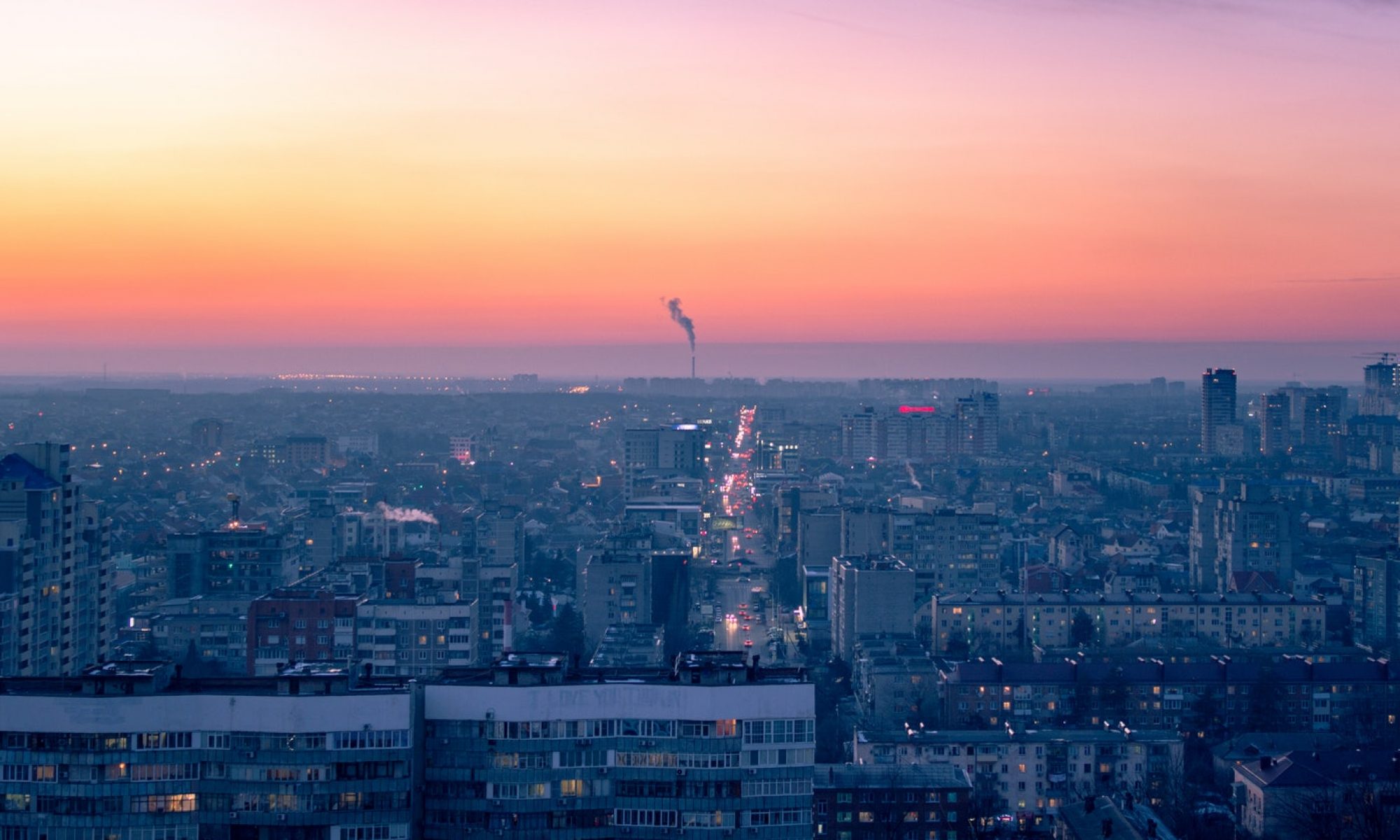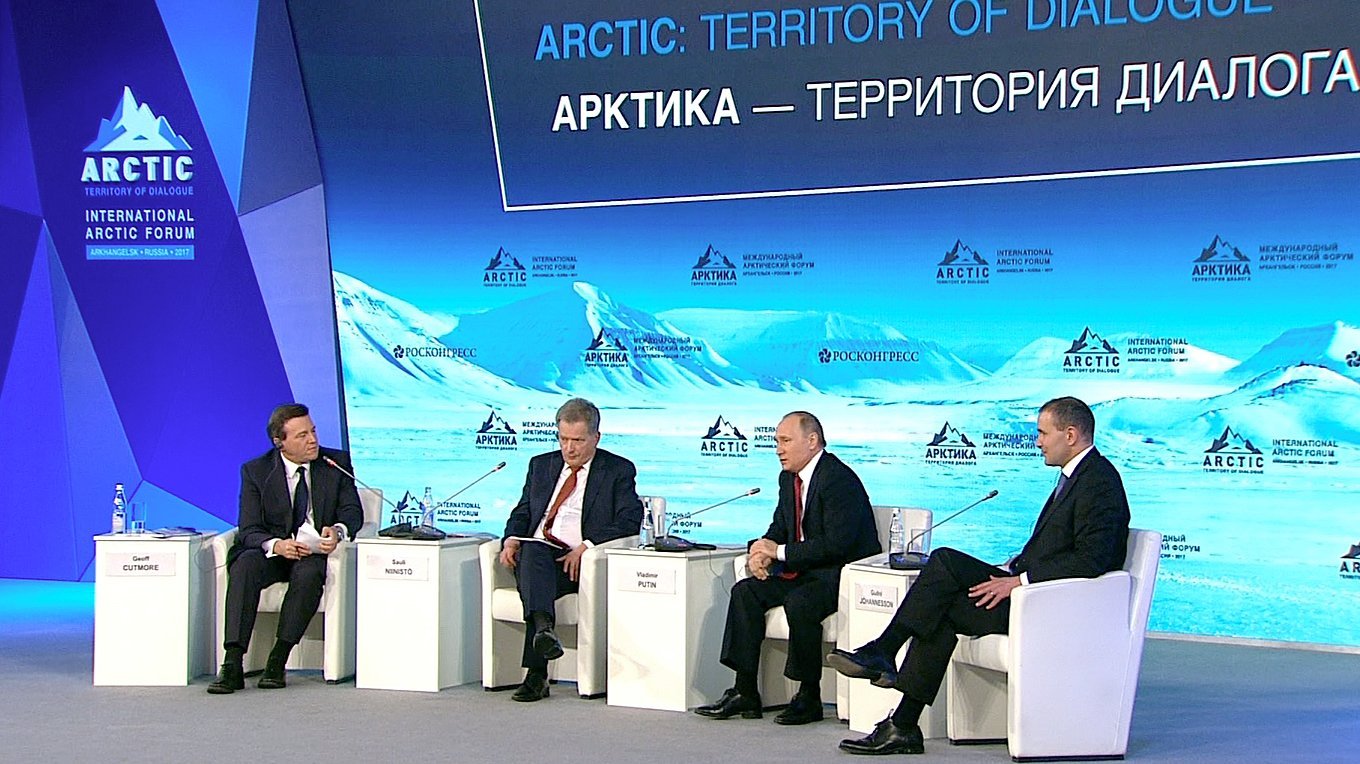Last week our doctoral researcher Jussi Huotari attended the International Arctic Forum, which was organised in St. Petersburg on 9-10th of April. Read his reflection on the high-profile event from a first-hand perspective.
The 5th International Arctic Forum, The Arctic: Territory of Dialogue gathered more than 3600 participants in St. Petersburg, Russia, on April 9-10. The biannual event is a Russian version of its Icelandic (Arctic Circle Assembly) and Norwegian (Arctic Frontiers) counterparts. These events follow the line of the so-called ‘triple helix model’ of gatherings, which aim to assemble scientific, political, and business communities together to ponder Arctic future(s) from various perspectives. On the one hand, this is a warmly welcomed development, but on the other hand, it yields to ask the question what new have three big events at the same year have to offer? Maybe the rationale is to approach each separate gathering from the organizer’s and the hosting country’s perspective.
The Arctic forum of Russia attracted considerable international attention, at least in the Nordic countries, since it was the first time that the head of states of Norway and Sweden had bilateral talks with the President of the Russian Federation. Moreover, it was the first time ever that the head of states of five out of eight Arctic states had a joint discussion on Arctic issues. The presidents of Finland, Iceland, and Russia, and the prime ministers of Norway and Sweden attended the forum’s plenary session to discuss the theme The Arctic: An Ocean of Opportunity. Alongside the head of states’, the foreign ministers of the Kingdom of Denmark, the Kingdom of Norway and the Russian Federation were present, accompanied as well by several ministers, such as the Minister of Energy, Mr. Alexander Novak, and a number of representatives of the economic elite, such as Leonid Mikhelson, the CEO and chairman of NOVATEK.
The presence of the Russian political and economic elites’ vanguard created a certain atmosphere for the conference, which was visible via strict security checks when entering the forum, but also inside the venue. Besides security, the panels in the conference were full of Russian high-level national and regional authorities, politicians and business executives, which, typically, were all men. Moreover, the topics of the panels concentrated first and foremost on the Russian Arctic territories and their socio-economic development. The plenary session and few other sessions in the program were truly international by their nature.
The forum delivered two main messages. The first one was targeted to the international audience and it was spoken out by the president Putin and his advisers and cabinet. This message underscored the importance of multilateral cooperation in the Arctic, protection of vulnerable Arctic environment and confidence building between the Arctic states. The second one was a message to the Russian audience, and it that message the word ‘environment’ was discussed in the relation to business, hence it meant mainly favorable business environment that is required in order to proceed with ambitious drilling campaigns in the Arctic Seas.
The national champions, Gazpromneft and Novatek, shared their success stories of the shelf development and LNG capacity, but they also lobbied the government to harmonize regulations on offshore drilling.
Andrey Patrushev, GazpromNeft’s Deputy CEO of Offshore Development, argued that number of administrative bodies, which regulate offshore operations, create administrative barriers for shelf development and hinder the opening of new fields which are vital for the economic progress of Russia in the forthcoming years. General feeling in the panels was that the sanctions would not prevent Russia from re-starting oil exploration and drilling campaigns since, firstly, there is a growing need for Arctic oil and gas at global markets, and secondly, because Russian companies have been able to develop state-of-the-art drilling equipment on their own.
The one and half-day long forum was an intensive event. It also left somewhat mixed feelings about the gathering. The main discourse was pro-economic and about modernization, which is not, of course, unusual. While at the other Arctic conferences the perception of the region is related to global, i.e. Arctic as a part of the global system of states and vice versa, and the atmosphere is collective, these dynamics were not so visible at the Arctic: Territory of Dialogue conference. Nevertheless, a positive thing for the Arctic cooperation was that the international dialogue was at the highest political level, which underlines the exceptional nature of the Arctic region in the world politics.

